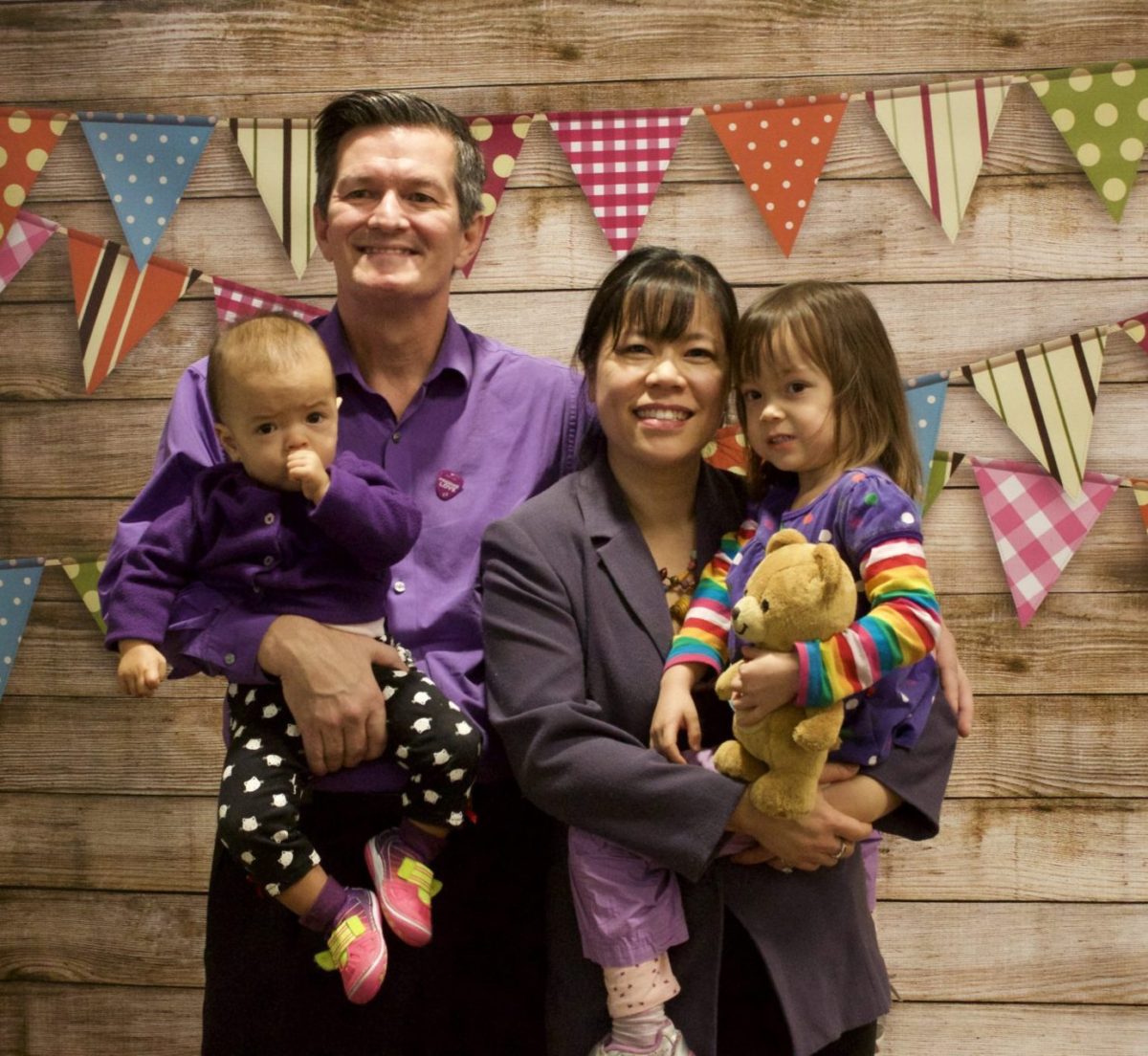Cries, laughter and gurgles echo throughout a second-floor room at Michael Garron Hospital, all of them coming from healthy, happy babies who were once bound to the hospital’s neonatal intensive care unit (NICU).
These same babies are now celebrating the hospital’s first World Preemie Day, known worldwide as World Prematurity Day, with their loved ones.
World Preemie Day commemorates the importance of premature births to families, society and health-care resources, said Dr. Celia Atkinson, Interim Chief of Pediatrics at the East York hospital. It started in Europe in 2008 but didn’t spread worldwide until 2011. It is celebrated each year on Nov. 17.
Going through the process of having a premature baby once can leave parents feeling fearful. Joanne Fong and Jonathan Foster went through it twice.
Fong and Foster are parents to two young girls: four-year-old Amarrah and 14-month-corrected Kalea. The term ‘corrected’ is used in reference to Kalea having been born two months premature.
Fong recalled being terrified when it all started with Amarrah. “When you talk about a bun in the oven, it’s like taking it out when it’s not fully baked. It’s scary, because a lot of the baby’s critical organs are still developing,” she said.
When Amarrah was born, she was the size of a teddy bear. Her father’s ring could fit around her arm. “Her arm was literally the size of my pinky,” he said.
When Fong was pregnant with Kalea, Fong was strictly monitored but developed preeclampsia, an issue characterized by high blood pressure. She ended up being hospitalized for a month at Sunnybrook Hospital.
During that time, she saw the fear on the faces of the mothers around her. When Amarrah came to visit, she became an unexpected source of comfort for those moms. “They saw life after prematurity and that it does get better,” Fong said. “I saw (that) knowing what to expect really helped them cope better.”
The couple turned to supporting new parents when they were transferred to Michael Garron Hospital (MGH) for the second time. They had already been through the process with Amarrah and knew what to expect.
MGH has an Advanced Level 2 NICU, a community special-care nursery. Babies who are born from 30 to 32 weeks are kept here.
“Babies are… vented for about five days,” interim pediatrics chief Atkinson said. “Longer ventilation will go into Level 3.”
Premature babies use ventilators to help them breathe, since their lungs aren’t fully developed. The babies in Level 3 are monitored for more serious issues, like jaundice, feeding challenges and breathing. Babies who are born at under 30 weeks also go to Level 3 NICUs, Atkinson said.
Once infants at Level 3 become stable, they are shifted to a Level 2 NICU.
The Level 3 NICUs in Toronto are at Sunnybrook Hospital, Sick Kids and Mount Sinai Hospital.
A Level 1 is known as a healthy birth. Babies are released with their moms within 24 to 48 hours, Atkinson said. A typical pregnancy lasts between 38 and 40 weeks.
Premature babies are affected in both the short and long term. In the short term, the biggest challenge is respiratory, since preemies are born without fully developed lungs, leading to breathing problems.
In the long term, one of the main concerns is whether these children are reaching milestones, Atkinson said.
Parents social
With the help of staff and pediatrician Dr. Jelena Popovic, Fong and Foster established the parent support group at MGH for mothers and fathers who are struggling with the process.
Weekly classes focus on helping new parents cope with stress when in the NICU and self-care. It is common for parents to stop caring for themselves in the midst of caring for their children, and it is possible for them to experience PTSD down the road.
The parent social “allows parents that might be in the same room to talk,” Foster said. “Like, hey, this is normal.”
The weekly event is put on with the help of the Canadian Premature Babies Foundation’s (CPBF) microgrants program.
CPBF also created a welcome book to help new parents navigate their time there. “The foundation’s goal is to support families in the NICU and in their journey going home,” said executive director Fabiana Bacchini.
That journey can be a long one, but it does pay off, Fong said.
“Being a parent is like starting a marathon, and then the preemie journey is another marathon beforehand with all the tension,” she said. “But when you get across that finish line, it’s amazing.”







